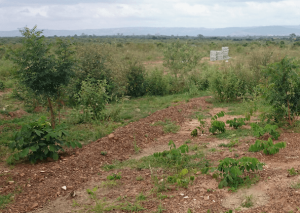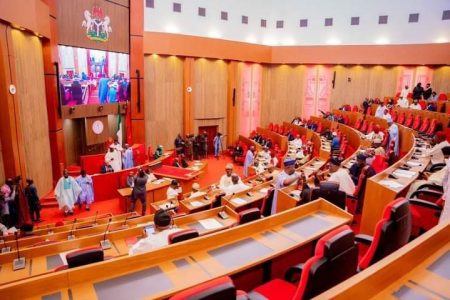Paragraph 1: Nigeria has significantly bolstered its capacity to combat animal diseases and safeguard public health with the inauguration of a state-of-the-art vaccine storage facility in Sheda, Federal Capital Territory. This 40 million-dose capacity cold room, powered by solar energy, represents a critical investment in the nation’s animal health infrastructure. Developed under the Livestock Productivity and Resilience Support Project (LPRES) with World Bank backing, the facility addresses a crucial gap in vaccine storage and distribution, paving the way for more effective responses to disease outbreaks and improved livestock management. Its strategic location along the Abuja-Lokoja Road further enhances accessibility and facilitates efficient vaccine delivery across the country.
Paragraph 2: The inauguration of the facility underscores the Nigerian government’s commitment to enhancing the livestock sector’s resilience and productivity. Minister of Livestock Development, Idi Maiha, emphasized the facility’s role in strengthening national animal health service delivery, describing it as a “world-class” solution to critical storage challenges. The solar-powered design ensures operational sustainability and mitigates the risks associated with power supply inconsistencies, a common challenge in the region. This resilience is crucial for maintaining the cold chain integrity of vaccines, ensuring their efficacy and preventing wastage. The facility’s substantial capacity will enable a more proactive and robust response to zoonotic diseases – those that can transmit between animals and humans – safeguarding both animal and human populations.
Paragraph 3: Prof Attahiru Jega, co-chair of the Presidential Livestock Reforms Committee, highlighted the alignment of this initiative with the broader presidential agenda for livestock sector reform. He underscored the significant threat posed by animal diseases, particularly transboundary and zoonotic diseases, to Nigeria’s food security, public health, and economic stability. The new facility represents a pivotal step in mitigating these threats and repositioning the livestock sector for enhanced productivity and contribution to the national economy. Its establishment signifies a concerted effort to address the complex challenges facing the sector and create a more sustainable and resilient livestock industry.
Paragraph 4: The strategic importance of the facility extends beyond immediate disease control. Minister Maiha articulated the broader vision for the livestock sector, including the commercialization of the National Veterinary Institute in Jos. This initiative aims to boost domestic vaccine production capacity to approximately 1.2 billion doses annually, further strengthening Nigeria’s self-sufficiency in vaccine supply. This ambitious goal, combined with the enhanced storage capacity offered by the new facility, positions Nigeria to effectively address both current and future disease challenges while reducing reliance on imported vaccines. This integrated approach strengthens the entire livestock value chain, from production to disease prevention.
Paragraph 5: The LPRES National Project Coordinator, Sanusi Abubakar, provided further context for the development of the facility, emphasizing the thorough needs assessment conducted in collaboration with the Office of the Chief Veterinary Officer of Nigeria. He cited the recent anthrax outbreak as a prime example of the project’s effectiveness, highlighting the successful delivery of 13 million vaccine doses to veterinary offices across 36 states and the FCT. This rapid response demonstrated the importance of efficient logistics and readily available vaccine stocks, capabilities now significantly enhanced by the new storage facility.
Paragraph 6: The newly inaugurated facility is poised to serve as a central hub for vaccine management in Nigeria. It will streamline the storage, distribution, and quality control of large vaccine supplies, both domestically produced and imported. Its centralized location and robust infrastructure will facilitate efficient dispatch to various parts of the country, ensuring cold chain maintenance throughout the distribution process. The facility will also serve as a repository for emergency vaccine stocks, enabling rapid deployment in response to unforeseen outbreaks. Furthermore, its integrated tracking system will enhance transparency and accountability in vaccine management, further bolstering the effectiveness of disease control efforts. This comprehensive approach represents a significant advancement in Nigeria’s capacity to protect its livestock and safeguard public health against the threat of animal diseases.














